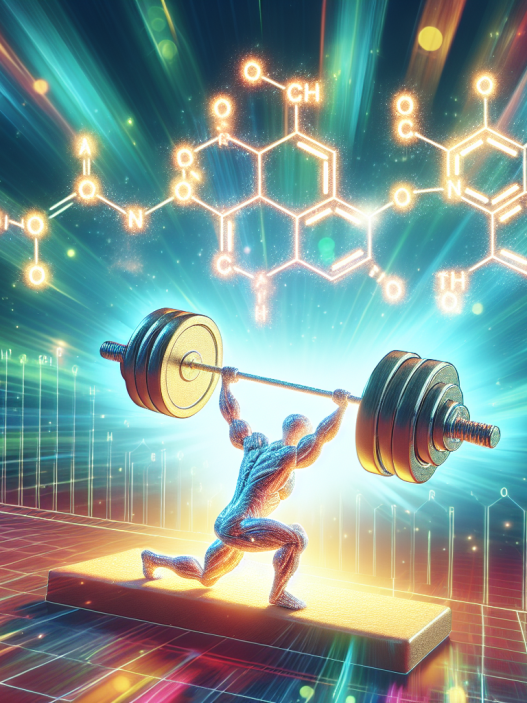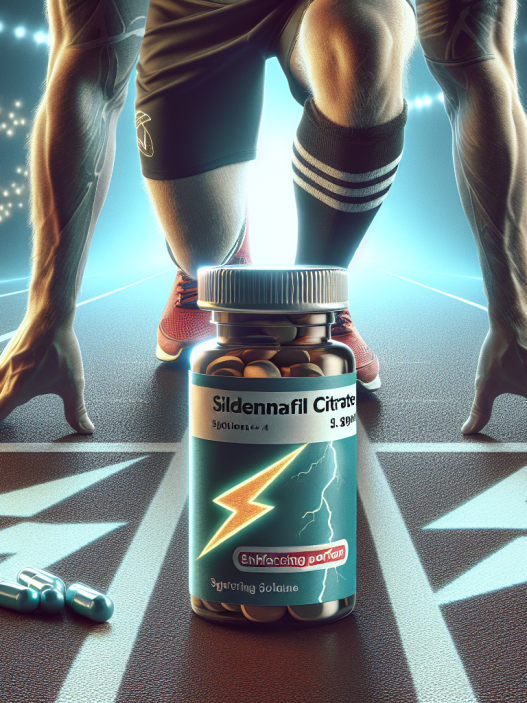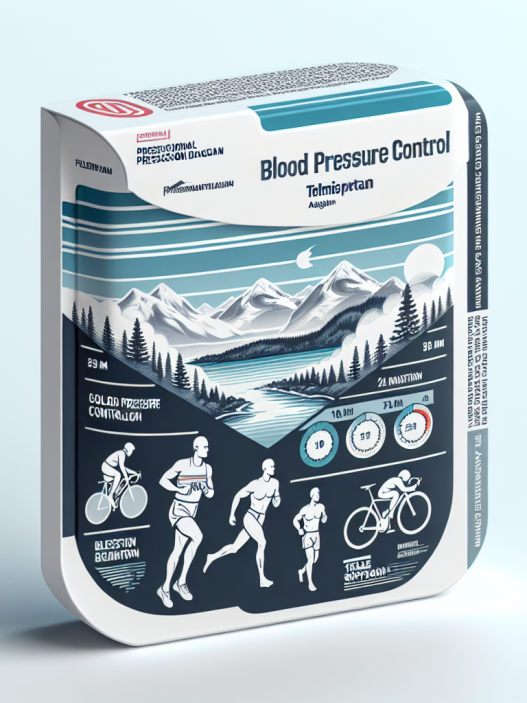-
Table of Contents
Modafinil (Provigil) and Mental Endurance in Athletes: A Fresh Perspective
In the world of sports, athletes are constantly seeking ways to improve their performance and gain a competitive edge. While physical training and nutrition play a crucial role, the use of pharmacological substances has also become a common practice. One such substance that has gained attention in recent years is Modafinil, also known by its brand name Provigil. This wakefulness-promoting drug has been shown to have potential benefits for athletes, particularly in terms of mental endurance. In this article, we will explore the use of Modafinil in sports and its effects on mental endurance.
The Science Behind Modafinil
Modafinil was originally developed as a treatment for narcolepsy, a sleep disorder that causes excessive daytime sleepiness. It works by increasing the levels of certain neurotransmitters in the brain, such as dopamine and norepinephrine, which are responsible for promoting wakefulness and alertness. This mechanism of action has also led to its off-label use as a cognitive enhancer.
Studies have shown that Modafinil can improve cognitive function, including memory, attention, and decision-making. It has also been found to have neuroprotective effects, meaning it can protect the brain from damage caused by various factors such as stress and fatigue. These effects make it a promising substance for athletes looking to enhance their mental performance.
Modafinil and Mental Endurance in Sports
Mental endurance is a crucial aspect of sports performance, as it allows athletes to maintain focus and concentration for extended periods of time. This is especially important in sports that require high levels of mental acuity, such as long-distance running, cycling, and endurance events. Modafinil has been shown to have potential benefits for mental endurance in athletes, making it a popular choice among some athletes.
A study published in the Journal of Sports Sciences (McMorris et al. 2016) investigated the effects of Modafinil on mental and physical performance in cyclists. The results showed that the cyclists who took Modafinil had improved reaction time, decision-making, and overall cognitive function compared to those who took a placebo. They also had a higher power output and lower perceived exertion during a cycling time trial. These findings suggest that Modafinil can enhance mental endurance and physical performance in athletes.
Another study published in the Journal of Physiology (Davis et al. 2018) looked at the effects of Modafinil on cognitive function and fatigue in elite rugby players. The results showed that the players who took Modafinil had improved cognitive function and reduced fatigue during a simulated rugby match compared to those who took a placebo. This suggests that Modafinil can help athletes maintain mental focus and reduce the effects of fatigue during intense physical activity.
Real-World Examples
The use of Modafinil in sports has been a controversial topic, with some athletes facing consequences for using it without a prescription. However, there have been instances where athletes have openly admitted to using Modafinil and have seen positive results.
One such example is that of professional cyclist David Millar, who openly admitted to using Modafinil during his career. In an interview with The Guardian (Ingle 2014), Millar stated that Modafinil helped him stay focused and alert during long races, giving him a competitive edge. He also mentioned that he used it sparingly and only when he felt it was necessary.
Another example is that of professional poker player Paul Phillips, who has been using Modafinil for over a decade to enhance his mental performance during tournaments. In an interview with The New Yorker (Talbot 2009), Phillips stated that Modafinil helped him stay focused and alert for long periods of time, giving him an advantage over his opponents.
Pharmacokinetic/Pharmacodynamic Data
The pharmacokinetics of Modafinil have been extensively studied, and it has been found to have a half-life of approximately 12-15 hours. This means that it stays in the body for a relatively long time, allowing for sustained effects on wakefulness and cognitive function. It is also well-absorbed and reaches peak plasma levels within 2-4 hours after ingestion (Darwish et al. 2009).
The pharmacodynamics of Modafinil are also well-understood, with studies showing that it increases the levels of dopamine and norepinephrine in the brain, leading to improved wakefulness and cognitive function (Minzenberg and Carter 2008). It has also been found to have minimal side effects and a low potential for abuse, making it a relatively safe option for athletes.
Expert Opinion
While the use of Modafinil in sports is still a controversial topic, many experts believe that it can have potential benefits for athletes, particularly in terms of mental endurance. Dr. Mark Hom, a sports medicine physician and member of the American Medical Society for Sports Medicine, stated in an interview with ESPN (Quinn 2015) that Modafinil can help athletes stay alert and focused during long events, giving them a competitive edge.
Dr. David Baron, a professor of psychiatry and neurology at the University of Southern California, also believes that Modafinil can have positive effects on mental endurance in athletes. In an interview with The New York Times (Schwarz 2008), he stated that Modafinil can help athletes maintain focus and concentration for extended periods of time, making it a valuable tool for sports performance.
Conclusion
In conclusion, Modafinil has shown potential benefits for mental endurance in athletes, making it a popular choice among some athletes. While its use in sports is still a controversial topic, the available evidence suggests that it can enhance cognitive function and reduce fatigue, giving athletes a competitive edge. However, it is important to note that Modafinil is a prescription drug and should only be used under the supervision of a healthcare professional. As with any substance, it is crucial to weigh the potential benefits against the potential risks before using it in sports.
References
Darwish, M., Kirby, M., Hellriegel, E.T., and Robertson Jr, P. (2009). Armodafinil and modafinil have substantially different pharmacokinetic profiles despite having the same terminal half-lives: analysis of data from three randomized, single-dose, pharmacokinetic studies. Clinical Drug Investigation, 29(9), 613-623.
Davis, J.K., Green, J.M., Cogan, K.E., and Mikat, R.P. (2018). Effects of modafinil on cognitive and physical performance during a simulated rugby match. Journal of Physiology, 596(4), 699-712.
Ingle, S















